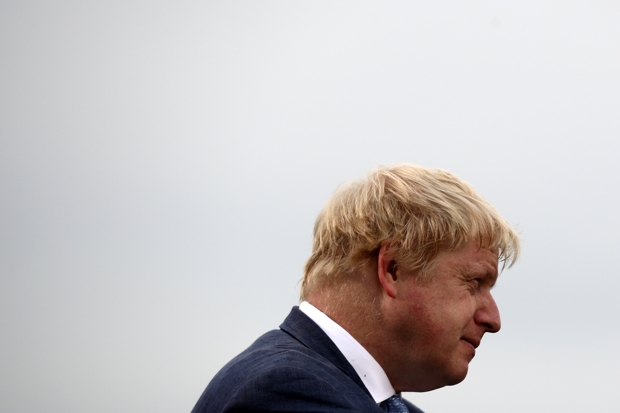This is a translation of an article I wrote for the Norwegian daily VG
Never since the German attack on Norway in 1940 destroyed Neville Chamberlain’s premiership and brought Winston Churchill to power, has your country been so discussed in Britain. Supporters of Britain staying in the EU warn of Norway’s ‘fax democracy’. The ‘leave’ campaign denounce Norwegian politicians who tell us about the dangers of following the Norwegian example, as liars bought with EU gold.
There has been propaganda from both sides, of course, but the sheer lack of substance behind the ‘leave’ campaign is stunning. The right-wing politicians, who dominate the anti-European cause, want the British to take an extraordinarily important decision. Yet they offer us no coherent plan about what we should do if we leave the EU.
For years, they said Norway was the model. ‘The people of Norway, Switzerland and Iceland are happy,’ explained Nigel Farage of the populist UK Independence Party in 2015. ‘Those countries have their own deals, to maintain the type of trading relationship they want.’
Rightists in this country are like members of a private club. They read the same newspapers, think the same thoughts, and do not subject their prejudices to scrutiny. You could not be a member if you were rude enough to engage in ordinary political debate. Argument was bad manners; a sign you were not the right sort of chap.
As soon as the EU campaign began, the right’s critics asked the hard questions the right should have asked itself years ago. They pointed out that Norway did indeed enjoy the benefits of the single market. Unfortunately, Norway also has to pay money to the EU, and accept the free movement of European labour in return. What was the point of agreeing to EU decisions, accepting EU migration while giving up your voice in EU decision making?
The anti-EU campaign quickly dropped all talk of Norway. Boris Johnson, a celebrity politician, whose clownish persona conceals a clear-minded ambition, wants to overthrow David Cameron and install himself as prime minister – as Churchill overthrew Chamberlain. Many think he does not believe a word he is saying and only joined the Leave camp to mobilise the right-wing support he needs to seize power.
If he becomes prime minster, we already have a taste of how confused Johnson’s rule would be. We could have two referendums, he suggested. We would vote to leave, but instead of leaving, we would negotiate a better deal with the EU, and then have a second referendum to endorse the improved terms. Johnson’s idea did not survive the mockery Cameron threw at it. If we voted to leave, we voted to leave, and that would be that.
In desperation the ‘leave’ campaign said, if we could not have two referendums, and we could not be like Norway, perhaps we could have Canada’s relationship with the EU or perhaps Albania’s relationship with the EU.
In normal times, their incoherent policies would have made them a laughing stock. But we are not living in normal times. And although if you asked me to guess, I would say that ‘remain’ will win, I am far from sure.
In Britain, as in much of the rest of Europe, anger at immigration has grown enormously. It is too easy to dismiss it as ‘racism’. There are genuine racists here. But much of the concern is due to the weight of numbers. Between 1993 and 2014, the foreign-born population in the UK more than doubled from 3.8 million to around 8.3 million. During the same period, the number of foreign citizens increased from nearly 2 million to more than 5 million.
The ‘leave’ campaign argues we can do nothing to stop migrants from eastern Europe arriving as long as we stay in the EU. In theory they are right, although in practice its alternative migration system appears to bring as many in.
In a strange way, Islamist terrorism and the Paris massacres also help the anti-Europeans. Rationally, the safest course is to have the closest possible cooperation with European police forces and intelligence agencies. But emotion governs politics as much as reason. Particularly among the old, there is nostalgia for the mainly white and peaceable Britain of the past – or at least the past they remember. With longer life expectancy, we have a huge number of elderly voters. At the 2015 British general election, the over-65s were also twice as likely as 18-24 year olds to vote. It is possible that in a referendum with a low turnout the old will take Britain out of the EU.
Then there is the union itself. It is a wretched sight. The disastrous Euro experiment has ravished southern Europe. The EU can barely cope with the refugee crisis. Populist parties are rising everywhere, saying it has gone too far too fast. Why should Britain stay?
By not being specific, the ‘leave’ campaign has enjoyed a great propaganda advantage. It can promise what it wants and its opponents cannot pin it down. If it wins, however its luck will run out. From the International Monetary Fund to the Organisation for Economic Development and Cooperation, every serious international financial body believes a vote to leave will be followed by an economic crisis in Britain, and possibly in the rest of Europe too.
In those circumstances, the pressure from British business to retain access to the single market will be enormous. Business would want us to join you in the European Economic Area. It would say the new Johnson government would have to forget all its promises about stopping migration from the EU and secure jobs. If the economic crisis were anything like as bad as the experts predict, most voters would agree, as would the majority of Britain’s politicians, who never wanted us to leave in the first place.
In other words, one day, maybe soon, the British will be Norwegians too. We’re not so bad. You will get to like us – eventually.







Comments